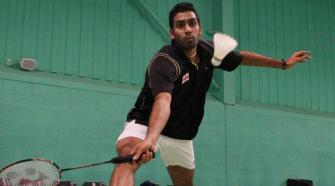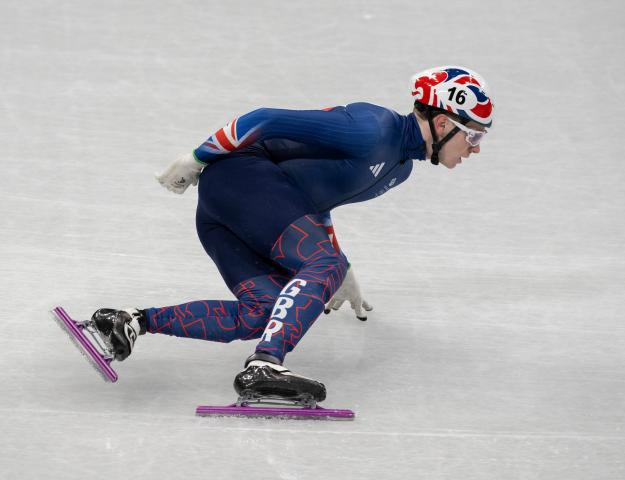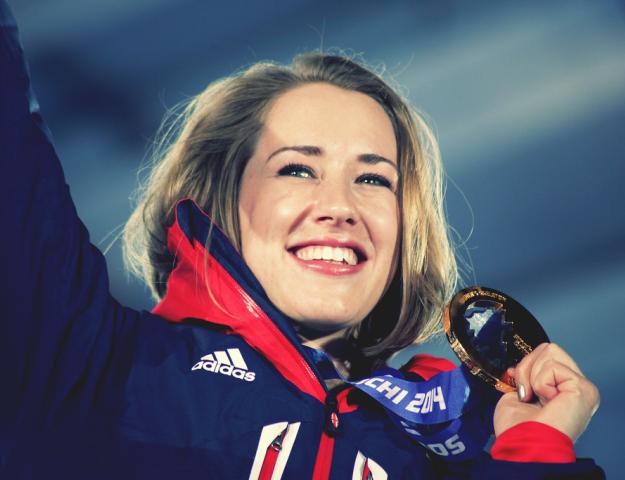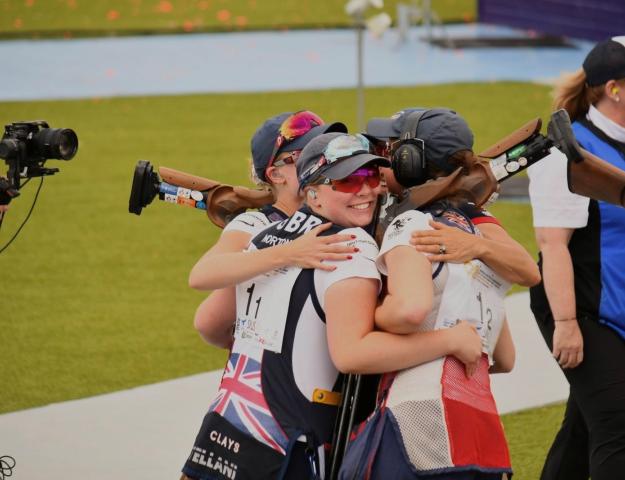Image

Representing your country is often said to be the greatest honour bestowed upon an athlete.
But how do you reach that point? And what does it take to make the jump from competing at junior level to the senior stage? SportsAid has helped many of Britain’s leading sports stars during the early stages of their careers. The charity's extensive alumni stretches across the generations with a large selection establishing themselves as household names.
Our feature series, entitled ‘From Junior to Senior’, in association with Commonwealth Games England, sees a member of our alumni reflect on their sporting journey. They reveal how they initially got into their sport, the significance of the first medal they won, the stand-out moment of their early years and their biggest comeback. They also talk about the time they stepped up to senior level and highlight the main influence throughout their development.
Rajiv, who won seven consecutive national titles between 2008 and 2014, enjoyed a medal-laden career which saw him stand on the podium countless times at the Commonwealth Games and European Championships.Rajiv featured for Team England at three Commonwealth Games in total - debuting in Delhi with silver and bronze back in 2010. He claimed silver in Glasgow, four years later, and took double bronze on the Gold Coast before retiring in 2019.
The 35-year-old also represented Team GB at the Rio 2016 Olympic Games and was crowned European men’s singles champion in 2017. One of his earliest senior medals came at the Sudirman Cup in 2007 with bronze in the team event.
WHERE THE JOURNEY BEGAN
“My family all played and my dad, in particular, used to play all the time. He played for clubs in and around where we lived and I have two older sisters who both played badminton as well. My father was quite a gifted player with a natural talent. He played at club level but had some natural skills and abilities that he definitely passed onto me.
“It was a game very much within our family from the start and I just managed to progress from there really, moving onto play for junior clubs where I really developed. For me it was something that was with me from quite a young age, I can’t really remember much of a time where I wasn’t playing.
“I’ve got to give a big thanks to my family for helping me into the sport. My older sister made a lot of mistakes in her career, but I guess I could learn from them and her. So they all made a big difference to my development.
“My mum and dad ferried me around everywhere to play, and then my sister took over as soon as she could drive. I wouldn’t have been able to play at a high level without them.”
WINNING MY FIRST MEDAL
“I played a junior tournament in Holland (the European Junior Championships) and we had to get a coach all the way over there, it ended up taking around 20 hours. And I went over with my dad, there was a big group of us in the tournament, but it was probably when I first realised how much I enjoyed competing.
“I think it was that moment where I realised ‘this is what I can see myself doing going forward’. I won gold in the men’s singles and that was a massive confidence boost, a really pivotal moment for me.
“It was back when I was naturally quite a good player with my background, but some of my coaches around that time may have used the word ‘lazy’ when asked about my training!”
THE STAND-OUT MOMENT
“I actually played at the Commonwealth Youth Games [Bendigo 2004], which was also a big part of my development. A chance to go to another country as part of a national squad, with the best athletes in the country gave me real confidence. But it was a slower, natural progression in many ways.
“When I got more serious about my training in my mid-late teens that is when I found real progression in my physicality and my results. When you have more success, this drives you on a little bit. Once I went to play at a World Juniors I knew I had to give my absolute all to make it as a senior.
“Going to watch the 2002 Commonwealth Games in Manchester was another massive moment for me. I remember going there with my family and just to be there in the crowd, seeing it first-hand at such a young age, had a really big impact on me wanting to progress (in badminton).
“It’s cool that things have come full circle and that the Games are back in England this year.”
MY BIGGEST OBSTACLE….AND PIVOTAL MOMENT
“It can’t be boiled down to just one moment. It was a two-to-three-year period from the age of 19 to 22-23 that was really difficult. I was producing the odd good result….but I think consistency was really hard to find during that period for me.
“There was no special secret on how to get through it - it was down to hard work and having really good people around me - coaches and family in particular. I think most players will face knockdowns, it is inevitable. But those people can pick you up and get you back on the right path.”
STEPPING UP TO SENIOR LEVEL
“I was a pretty good junior. I won European Juniors and I was obviously elated with that at the time, but for the next few years that put a pretty big target on my back. Particularly from some of the older players. Senior pros probably thought ‘right I’ll show this kid what badminton is all about’.
“So in some ways it was a rude awakening. I probably rested on my laurels a little bit after that win. But this is all part of the process, it was for me anyway. I knuckled down for a year or two and got back to the level of play I had shown prior to making the step up.
“It takes a while that transition from junior to senior. You are learning how to come a full-time athlete. It took me a while – but normally the hard work pays off. I know how difficult it can be but you have to be patient, I hope that comes into my coaching now.”
MY MAIN INFLUENCE
“I think my dad. It may sound obvious, but particularly during my time as a junior and early senior career, he helped me play at a really high level and develop. Then once I went beyond that, we had a really good team of coaches and more senior players after that who really coached me and helped me.”
Commonwealth Games England has appointed SportsAid to lead on the development, management and operational delivery of Team England Futures at the Birmingham 2022 Commonwealth Games. The programme, supported by Sport England, will reinforce the importance of the Commonwealth Games, particularly one hosted on home soil, as a developmental opportunity within the talent and performance pathway!



